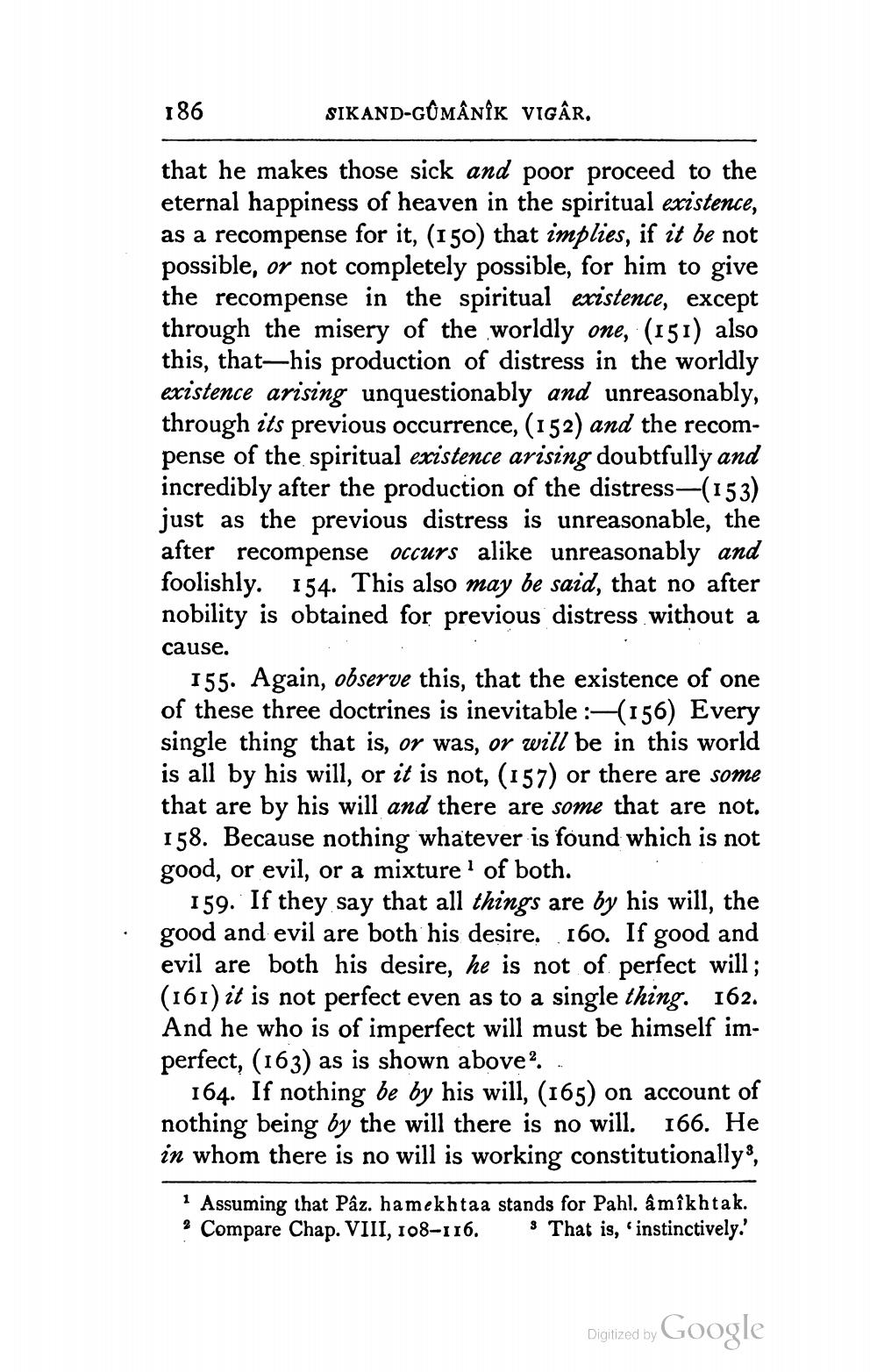________________
186
SIKAND-GÛMÂNÎK VIGÂR.
that he makes those sick and poor proceed to the eternal happiness of heaven in the spiritual existence, as a recompense for it, (150) that implies, if it be not possible, or not completely possible, for him to give the recompense in the spiritual existence, except through the misery of the worldly one, (151) also this, that—his production of distress in the worldly existence arising unquestionably and unreasonably, through its previous occurrence, (152) and the recompense of the spiritual existence arising doubtfully and incredibly after the production of the distress—(153) just as the previous distress is unreasonable, the after recompense occurs alike unreasonably and foolishly. 154. This also may be said, that no after nobility is obtained for previous distress without a cause.
155. Again, observe this, that the existence of one of these three doctrines is inevitable :-(156) Every single thing that is, or was, or will be in this world is all by his will, or it is not, (157) or there are some that are by his will and there are some that are not. 158. Because nothing whatever is found which is not good, or evil, or a mixture of both.
159. If they say that all things are by his will, the good and evil are both his desire. 160. If good and evil are both his desire, he is not of perfect will ; (161) it is not perfect even as to a single thing. 162. And he who is of imperfect will must be himself imperfect, (163) as is shown abovea.
164. If nothing be by his will, (165) on account of nothing being by the will there is no will. 166. He in whom there is no will is working constitutionally, 1 Assuming that Pâz. hamekhtaa stands for Pahl. âm îkhtak. ? Compare Chap. VIII, 108-116. That is, 'instinctively.'
Digitized by Google




